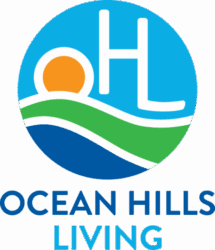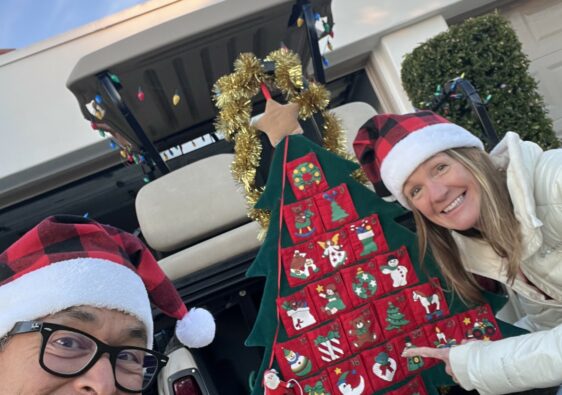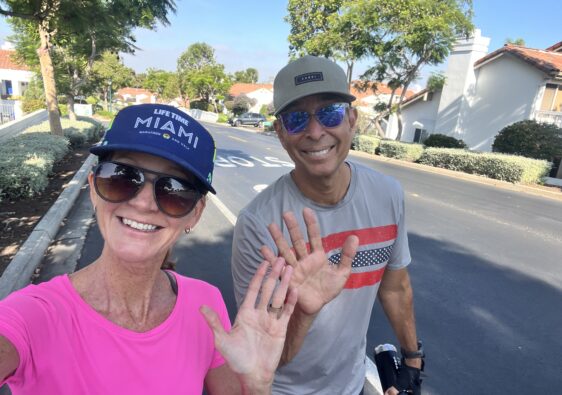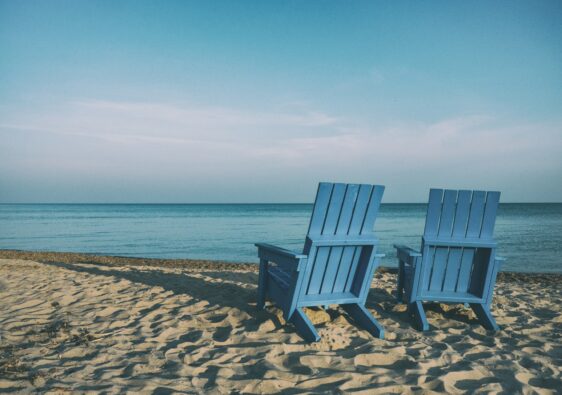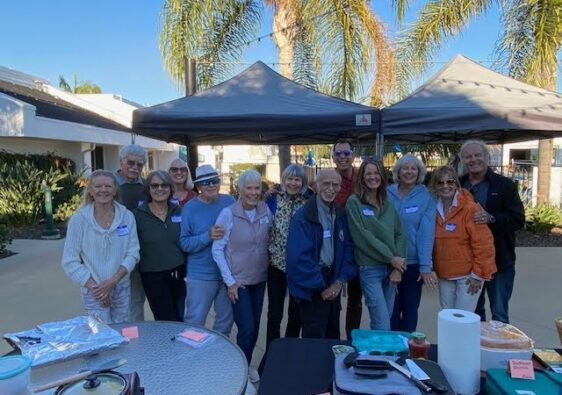Have you heard of Blue Zones?
Blue Zones are specific regions across the globe where people live significantly longer, healthier lives compared to the rest of the world. Coined by National Geographic Fellow Dan Buettner, these zones have become the subject of intense study and admiration for their ability to foster longevity and well-being among their inhabitants.
There is a great Netflix series called Living to 100 that is centered on the Blue Zones. If you haven’t seen it yet, definitely check it out.
One of our goals is to bring more Blue Zone practices into our daily lives. It was part of the reason we decided to move into Ocean Hills Country Club. To simplify. To prioritize family connections and health. And, to build and strengthen our friendships. All of these are foundational in Blue Zones.
Blue Zones are characterized by several key factors:
Exceptional Longevity: The defining feature of Blue Zones is the remarkably high number of centenarians—individuals who live to be 100 years old or more. These regions consistently produce a disproportionately high number of long-lived individuals, sparking curiosity and prompting investigation into their lifestyle habits.
Healthy Aging: It’s not just about living longer; residents of Blue Zones also tend to enjoy better health and vitality well into old age. Chronic diseases that plague many societies, such as heart disease, diabetes, and certain cancers, are notably less prevalent among Blue Zone populations.
Cultural and Geographic Diversity: Blue Zones can be found in various parts of the world, from remote islands to mountainous regions and urban enclaves. Each Blue Zone boasts its own unique cultural practices, dietary habits, and social dynamics, challenging the notion that longevity is determined solely by genetics or environment.
Shared Lifestyle Factors: Despite their geographical and cultural differences, Blue Zones share common lifestyle characteristics that are believed to contribute to longevity. These include a predominantly plant-based diet, regular physical activity, strong social connections, and a sense of purpose or meaning in life.
Some notable examples of Blue Zones include:
Ikaria, Greece: This Greek island is known for its relaxed pace of life, strong social connections, and traditional Mediterranean diet rich in vegetables, olive oil, and fish.
Okinawa, Japan: In this Japanese archipelago, residents follow the principle of “Hara Hachi Bu,” which means eating until they are 80% full. Their diet is predominantly plant-based, with an emphasis on sweet potatoes, tofu, and green leafy vegetables.
Sardinia, Italy: In the mountainous region of Sardinia, residents maintain active lifestyles, eat a diet high in vegetables, whole grains, and healthy fats, and prioritize strong social connections within tight-knit communities.
Nicoya Peninsula, Costa Rica: The Nicoyans enjoy a diet rich in beans, corn, and tropical fruits, coupled with regular physical activity and a strong sense of purpose and belonging.
Loma Linda, California: This Blue Zone is unique in that it’s not a traditional ethnic enclave but rather a community of Seventh-day Adventists who follow a vegetarian diet, prioritize regular exercise, and observe a weekly day of rest.
Understanding the secrets of Blue Zones offers valuable insights into promoting health and well-being worldwide. By adopting aspects of their lifestyle—whether it’s embracing plant-centric diets, prioritizing social interactions, or cultivating a sense of purpose—we can strive to enhance our own longevity and quality of life.
Our goal is to incorporate as many of these practices in our lives right here in Ocean Hills Country Club. Won’t you join us? We are starting a Blue Zone Group in the neighborhood. The Blue Zone Group will gather once a month for a potluck of Blue Zone dishes. We will share food, social connections, and share what we are doing to incorporate Blue Zone aspects into our day-to-day life right here in Ocean Hills Country Club.
Join our monthly INSIDER newsletter for updates & information on our neighborhood Blue Zone Group.
